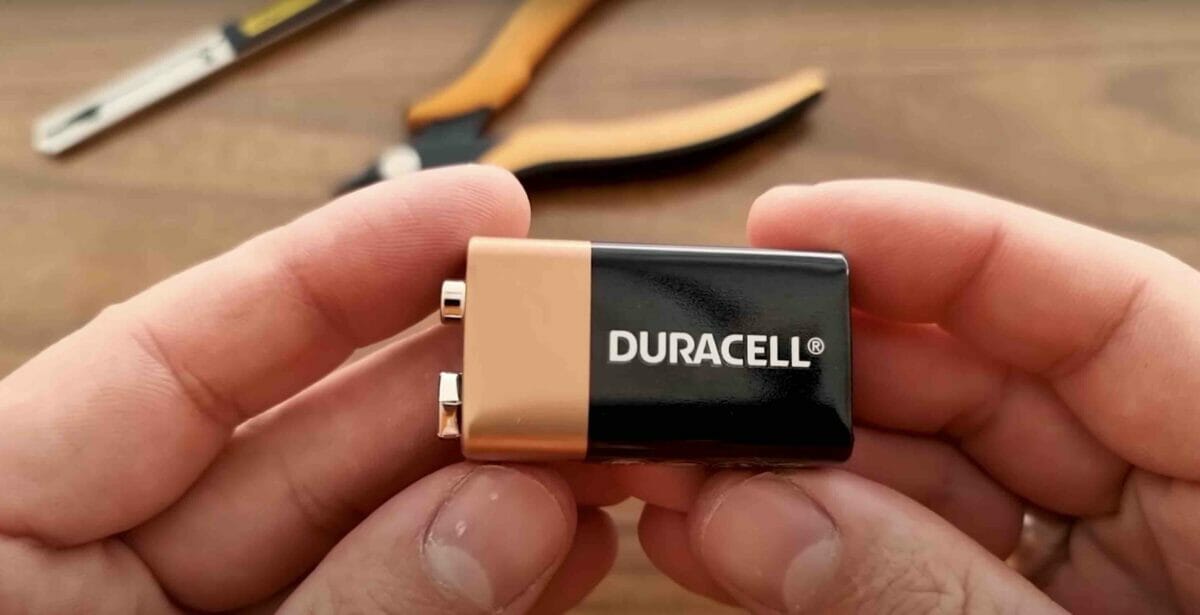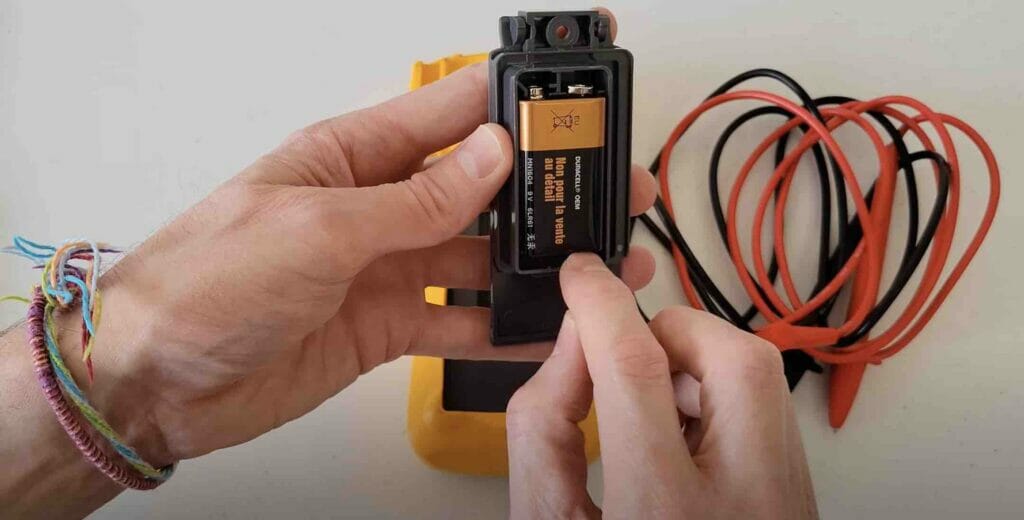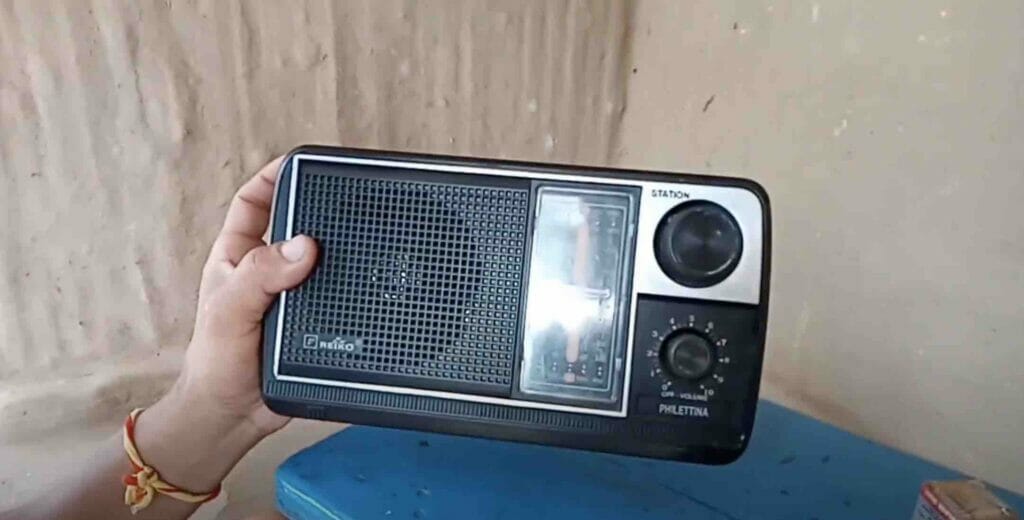What Uses a 9V Battery? (Devices List & Why)

As a DIY enthusiast, I’ve always been fascinated by the versatility of 9-volt batteries. From powering smoke alarms to kickstarting garage door openers, these little powerhouses have an impressive array of applications.
Their compact size makes them a popular choice for portable devices, and they can often be found at local stores for a reasonable price. Ready to get powered up?
Let’s journey through the many ways 9-volt batteries are used.
Why Devices Prefer 9v Batteries
There are several reasons why a 9V battery may be preferred in a device over other types of batteries:
- Voltage Requirements: Some electronic devices require a higher voltage to operate properly. A 9V battery provides more voltage than standard AA, AAA, C, or D cells, typically delivering 1.5V each.
- Space Constraints: 9V batteries are compact and can fit into smaller devices more easily than a set of AA or AAA batteries, which might deliver equivalent power but require more space.
- Less Frequent Replacement: Because of their higher voltage and typically greater total energy capacity, 9V batteries may need to be replaced less frequently than other types.
- Specific Device Design: Some devices are designed to work with a 9V battery. This is often the case with smoke detectors, certain microphones, and some medical equipment.
- Safety Considerations: In devices that need to be ultra-reliable, like smoke detectors, 9V batteries are used because they tend to have a longer shelf-life and are less likely to leak over time than other battery types.
Remember, the choice of battery heavily depends on the specific requirements of the device. Always refer to the device manufacturer’s instructions regarding appropriate battery usage.
Common Devices Using 9V Batteries
| No. | Devices Using 9V Batteries |
|---|---|
| 1 | Smoke detectors |
| 2 | Carbon monoxide detectors |
| 3 | Certain types of microphones |
| 4 | Guitar effect pedals |
| 5 | Some portable radios |
| 6 | Certain models of walkie-talkies |
| 7 | Some digital multimeters |
| 8 | Home security system sensors |
| 9 | Certain remote controls |
| 10 | Electronic door locks |
| 11 | Some types of children’s toys |
| 12 | Certain medical devices |
| 13 | Certain flashlights |
| 14 | Electronic stud finders |
| 15 | Some models of digital cameras |
In this section, let’s discuss some common devices that use 9V batteries. You’d be amazed at how many everyday items rely on these little powerhouses.
Smoke Detectors

First up, smoke detectors. These life-saving devices are found in nearly every home and building, and guess what? Most of them run on 9V batteries. I can’t stress enough how important it is to check and replace these batteries regularly – it could be the difference between life and death!
Multimeters

Next, let’s talk about multimeters. These handy gadgets are used by electricians, DIY enthusiasts, and even people like me for measuring electrical properties such as voltage, current, and resistance. They’re super useful for diagnosing problems with electrical circuits, and, you guessed it, they typically run on 9V batteries.
Portable Radios

Now, who doesn’t love a good ol’ portable radio? Whether you’re out camping, at a sporting event, or just chilling in your backyard, portable radios keep us entertained and informed. And you know what gets them powered up? That’s right, our trusty 9V battery!
Musical Instruments

Lastly, let’s talk about musical instruments. Did you know that many electronic instruments, like guitars, keyboards, and drum machines, rely on 9V batteries for power? It’s amazing how these little batteries can help bring beautiful melodies to life.
So there you have it, a handful of everyday devices that use 9V batteries. I hope this helps you better understand the incredible versatility of these small but mighty power sources.
Advantages & Disadvantages of 9V Batteries
| Advantages | Disadvantages | |
|---|---|---|
| Utility | Compact size, long-lasting life, and consistent voltage output. | Not applicable. |
| Cost | Long life and consistent voltage can offset the higher costs. | Used in devices that require 9V power, like smoke detectors, multimeters, and certain toys. |
| Compatibility | Used in devices that require 9V power, like smoke detectors, multimeters, and certain toys. | Used in fewer types of devices compared to AA or AAA batteries. |
| Environmental Impact | Not applicable. | More frequent replacements and limited usage contribute to more waste. |
Frequently Asked Questions
How long does a 9V battery typically last?
The lifespan of a 9V battery can vary quite a bit, depending on factors like usage and the type of the battery itself (alkaline, lithium, etc.). An alkaline 9V battery can last up to a year or even more for a moderate-use device, such as a smoke detector. But the battery might need to be replaced more frequently for more power-hungry gadgets.
Are there differences in 9V battery capacities?
Absolutely! 9V batteries come in different types – alkaline, lithium, and rechargeable, to name a few. Each type has its capacity, with lithium batteries offering the highest energy density. This means that lithium 9V batteries can often last longer than their alkaline counterparts.
What connectors are used with 9V batteries?
When hooking up a 9V battery to a device, the most common connector you’ll encounter is the snap-on clip, also known as the T-type or battery clip. This connector usually has a red (positive) and a black (negative) wire, which makes it super easy to connect the battery the right way up. Just snap it on, and you’re good to go!
References
Video References
Penguin DIY
Paul79UF
Todd’s Garage
S.K electronics & electricals
Tom Leeman
